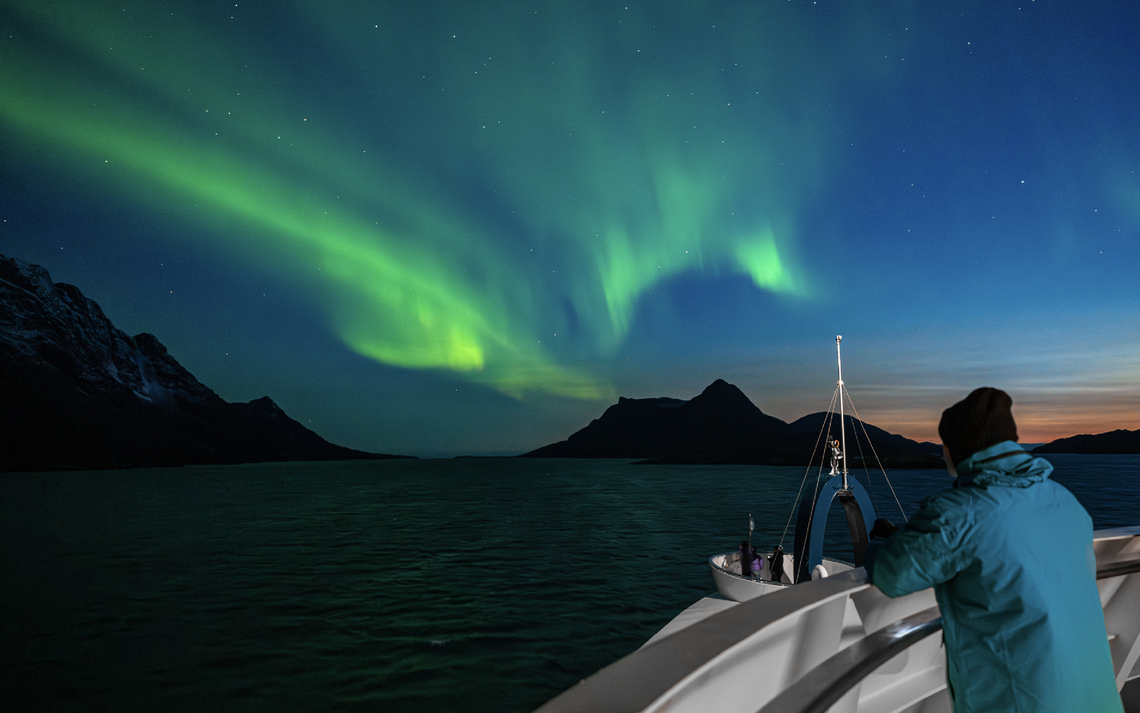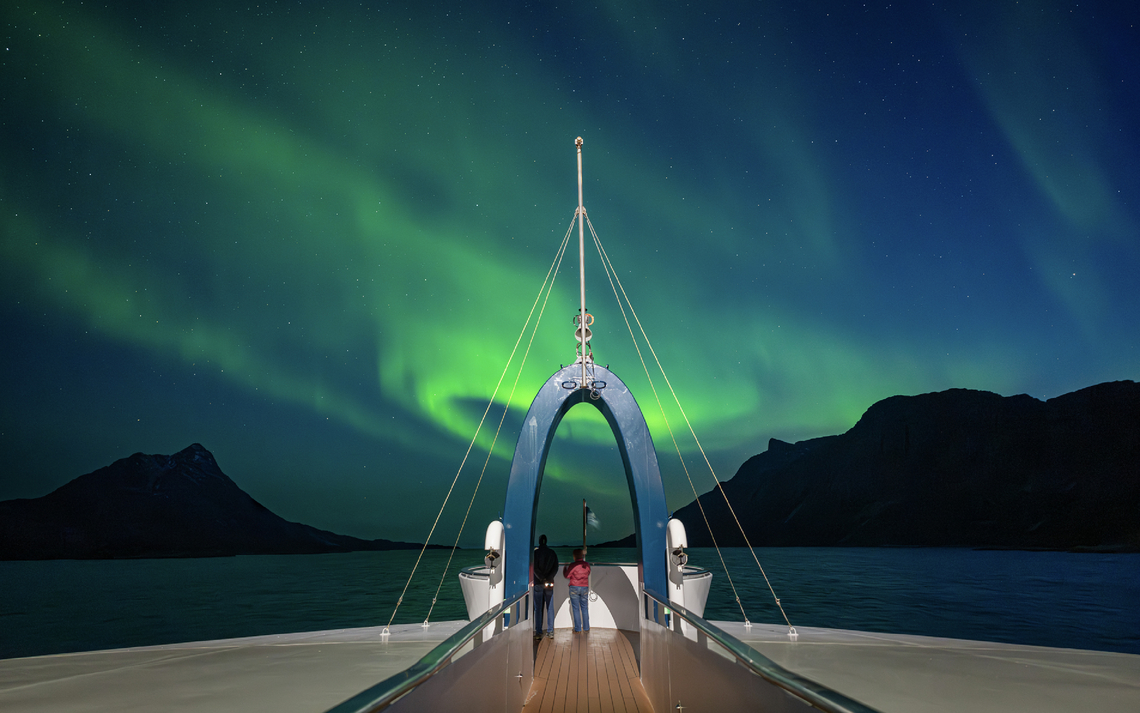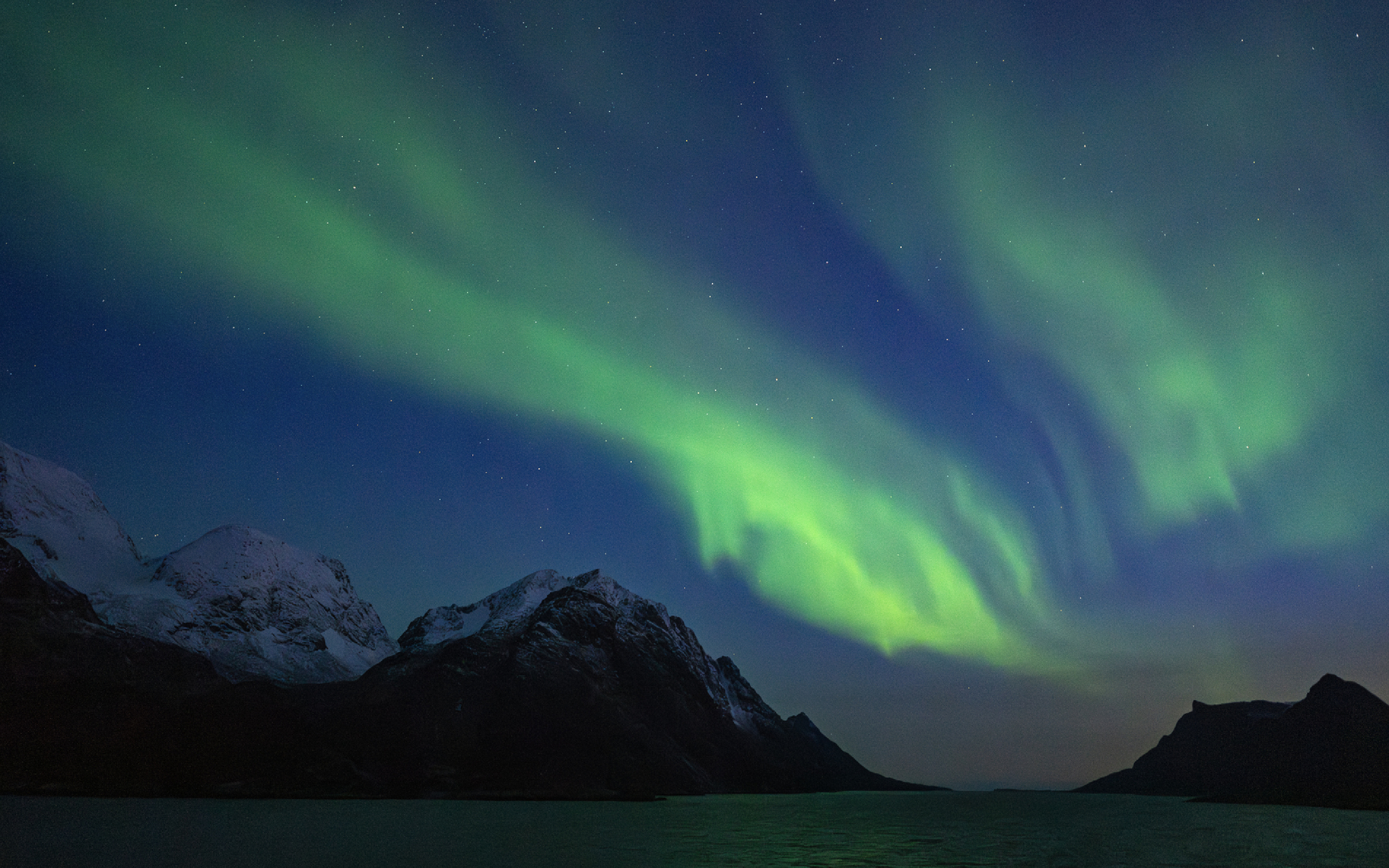Northern Lights in Iceland
Iceland is one of the best places in the world to witness the stunning natural display of the aurora borealis. The northern lights, known for their spectacular colors and ethereal movements, draw visitors from all over the globe. To make the most of your trip and ensure you have the best chance of seeing this incredible phenomenon, planning your visit at the right time and in the right conditions is crucial.
Also known as the Aurora Borealis, this breathtaking phenomenon occurs when solar particles interact with gases in the Earth's atmosphere and create magnificent, colorful light displays. As Iceland is situated at 65°N, this beautiful country lies within the Northern Lights belt. So, when can you see the Northern Lights in Iceland? While we can’t guarantee you’ll see the Northern Lights – as visibility is influenced by geomagnetic activity and local weather – we know when you’ll most likely encounter them. These unforgettable celestial light shows occur year-round. Still, they are weaker than sunlight, so Aurora Borealis are easier to see on cloudless nights, and the darker the sky is, the clearer the majestic displays will appear!

When to Go to Iceland to See the Northern Lights?
The best time to see the northern lights in Iceland is during the winter months, from late September to early April. The long nights and dark skies during this period provide the ideal conditions for northern lights viewing. Iceland’s darker, colder months provide the perfect canvas for the magical light shows, with the strongest lights appearing between 9 pm and 2 am. And with little light pollution, Iceland’s dark skies make aurora sightings more intense!
While the aurora borealis can occasionally be seen as early as late August, the peak season for witnessing the lights in their full glory is from October to March. During these months, the aurora northern lights are more frequent and vivid.
Best Places to See the Northern Lights in Iceland
To maximize your chances of witnessing the aurora borealis, it’s essential to choose the best places to see the northern lights in Iceland. Here are some top locations:
- Reykjavik: While you can sometimes see the northern lights from Reykjavik, heading to less light-polluted areas nearby increases your chances.
- Heimaey: A 13-square-km island in the Westman Islands off southern Iceland, with no light pollution at all.
- Akureyri: Located in northern Iceland, this town is a great base for northern lights tours and offers excellent viewing conditions.
Useful Information and Tips
Here are some tips to help you plan your northern lights cruise in Iceland:
- Check the Weather: Use an aurora borealis weather forecast for Iceland to monitor solar activity and weather conditions.
- Avoid Light Pollution: Head away from city lights to areas with clear, dark skies for the best viewing experience.
- Dress Warmly: Icelandic winters are cold, so wear layers and bring warm clothing to stay comfortable during your nighttime observation.

FREQUENTLY ASKED QUESTIONS
Q: Where can you see the Northern Lights?
You can see the northern lights across Iceland, but the best locations are away from city lights, such as Heimaey Island, Jökulsárlón Glacier Lagoon, and Akureyri.
Q: How likely is it to see the northern lights in Iceland?
Seeing the northern lights in Iceland is quite likely during the peak season (October to March), provided the weather and solar activity are favorable.
Q: Can you see the northern lights from Reykjavik?
Yes, but for a better experience, it’s recommended to travel to less light-polluted areas nearby.
Q: What is the best month to travel to Iceland?
The best months to travel to Iceland for northern lights viewing are October through March, when the nights are longest and the skies darkest.
Q: Can you see the Northern Lights every night in Iceland?
No, seeing the northern lights every night is not guaranteed as it depends on solar activity and weather conditions. However, during the peak season, the chances are significantly higher.
